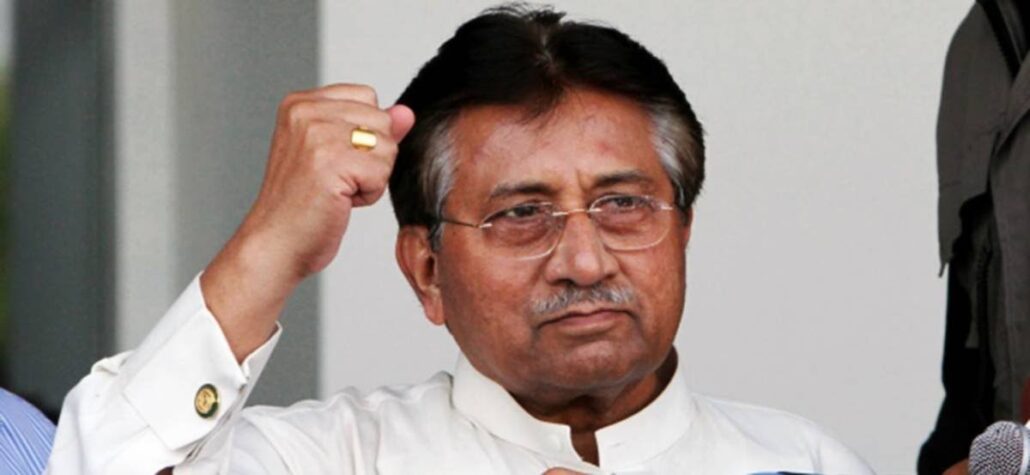
Former President Pervez Musharraf has passed away after prolonged illness, Pakistani media reported on Sunday.
The 79-year-old former president was being treated for an illness at an American Hospital in Dubai.
Born August 11, 1943, New Delhi, India, Parvez Musharraf who took power in a coup in 1999 had also served as president of Pakistan from 2001 to 2008.
He joined the Pakistani army in 1964 and fought in Pakistan’s 1965 and 1971 wars with India. Prime Minister Nawaz Sharif appointed him head of the armed forces in October 1998. Musharraf is believed to have played a key role in the invasion of Jammu Kashmir in the summer of 1999. Under international pressure, Sharif later ordered the troops to pull back to Pakistani-controlled territory, a move that angered the military.
On October 12, 1999, while Musharraf was out of the country, Sharif dismissed him and tried to prevent the plane carrying Musharraf home from landing at the Karachi airport. The armed forces, however, took control of the airport and other government installations and deposed Sharif, paving the way for Musharraf to become head of a military government. Following the September 11 attacks in 2001 in the United States and the subsequent U.S. invasion of Afghanistan later that year, the U.S. government cultivated close ties with Musharraf in an attempt to root out Islamic extremists in the Afghan-Pakistan border region.
He reinstated the constitution in 2002, though it was heavily amended with the Legal Framework Order (LFO)—a provision of which extended his term as president for another five years. Parliamentary elections were held in October 2002, and in late 2003 the legislature ratified most provisions of the LFO.
In 2007 Musharraf sought re-election to the presidency, but he faced opposition from Pakistan’s Supreme Court, primarily over the issue of his continuing to serve simultaneously as both president and head of the military. The poor performance of Musharraf’s party in the February 2008 parliamentary elections was widely seen as a rejection of the president and his rule. The elections yielded an opposition coalition headed by Sharif and Asif Ali Zardari, the widower of former prime minister Benazir Bhutto, who had been assassinated in December 2007. Citing grave constitutional violations, the governing coalition moved in early August 2008 to begin impeachment proceedings against Musharraf, and, faced with the impending charges, Musharraf announced his resignation on August 18.
In October 2010, after a period of self-imposed exile, Musharraf announced the formation of a new political party, the All Pakistan Muslim League, and vowed to return to Pakistan in time for the 2013 national elections. He did so in March 2013, but his bid to stand in elections faced a variety of legal and political obstacles, including several open criminal investigations regarding his actions as president.
On April 18 a Pakistani court disqualified him from entering the race because of an ongoing investigation regarding his suspension of the constitution in 2007. He was arrested the following day to face charges stemming from the investigation. In August 2013, with Musharraf still under house arrest, murder charges were filed against him in connection with Bhutto’s assassination in 2007.
Musharraf was permitted to leave the country to seek medical treatment in Dubai in 2016, where he remained thereafter. In late 2018 it was revealed that his health was rapidly deteriorating due to amyloidosis. He was convicted a year later in absentia on charges of high treason and sentenced to death, though his state of health made any return to Pakistan unlikely. In January 2020, the special court that issued the sentence was ruled unconstitutional, and his conviction was overturned.
Details emerging.




